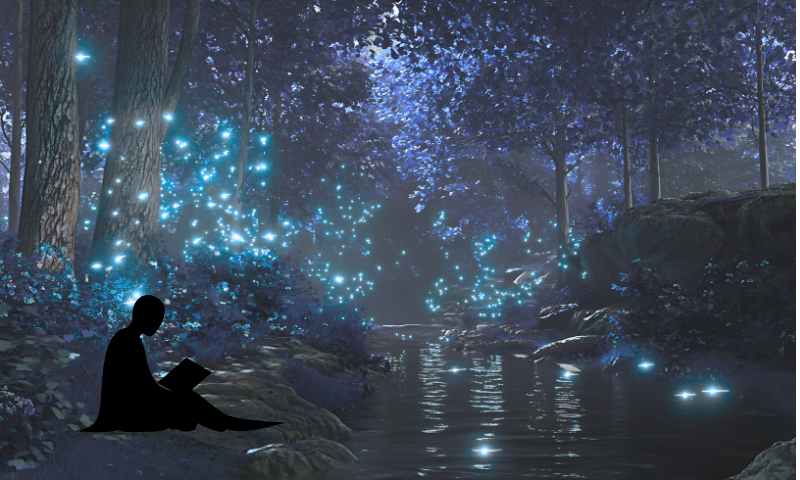
The quote in the title, “We are all lichens,” is by Merlin Sheldrake, author of Entangled Life: How Fungi Make Our Worlds, Change Our Minds & Shape Our Futures. If I could make an entire newsletter consisting of quotes about fungi and their relationships to other life-forms, I would. Instead I’ll focus this spooky October newsletter on fungoid fiction. Here’s another great quote I recently read in the new novella (just out by Stelliform Press) You Will Speak for the Dead, by R.A. Busby:
I wonder what we’ll do when the permafrost thaws. When the wind begins to blow and dries the soil. When it sweeps across clusters of spores that haven’t taken a trip in the breeze since the last mammoth died.
By the way, you just inhaled some more.
I’ve long been curious about fungoid fiction (sometimes called sporror), but I haven’t read a lot so far. Ironically, two of the books I read for our Discord’s 2024 environmental reading challenge this month deal with fungi horror as well, which links to things like body horror, colonialism, and invasion or even beauty and life-affirming transformation. You’ll find a lot of liminal and wild spaces in this literature where physical or emotional transformation takes place.
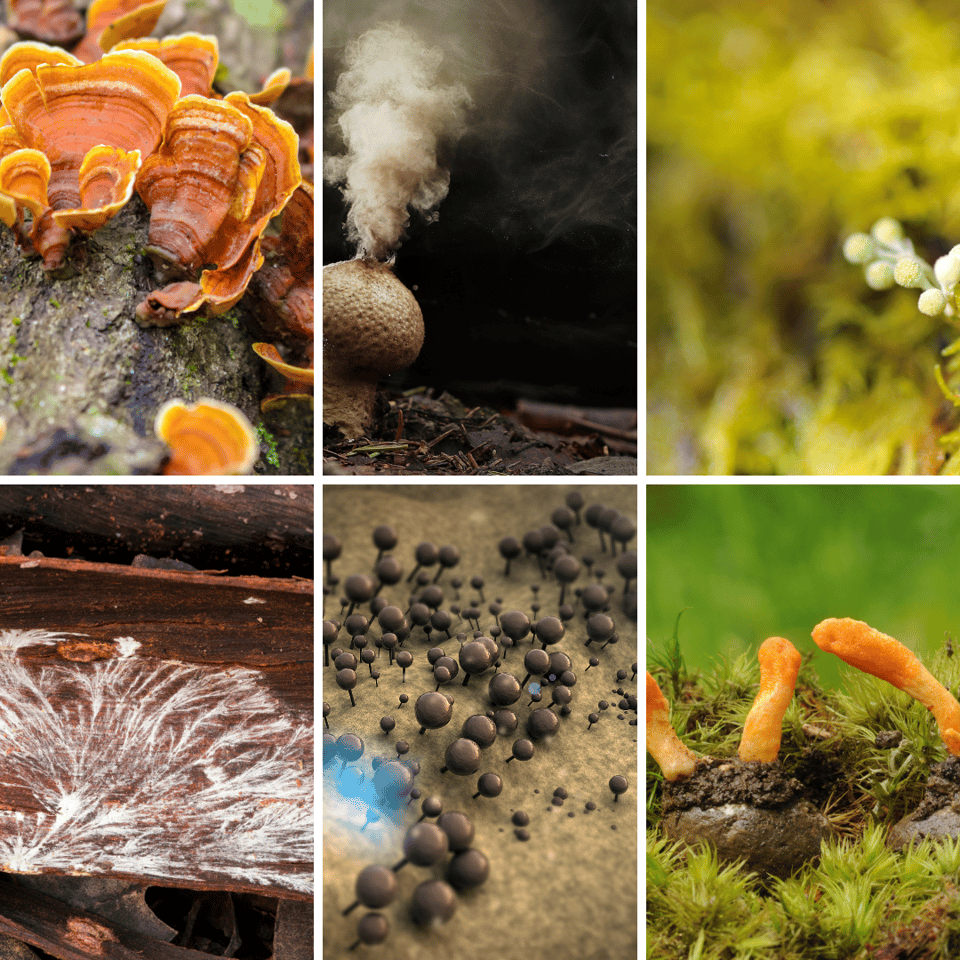
If you want to find out more titles under fungoid/fungus/fungi fiction, check out Book Riot, Before We Go, Clarkesworld, and Strange Horizons.
This month I have three books of the month, all of them full of dread, all of them read recently. Read? No, devoured.
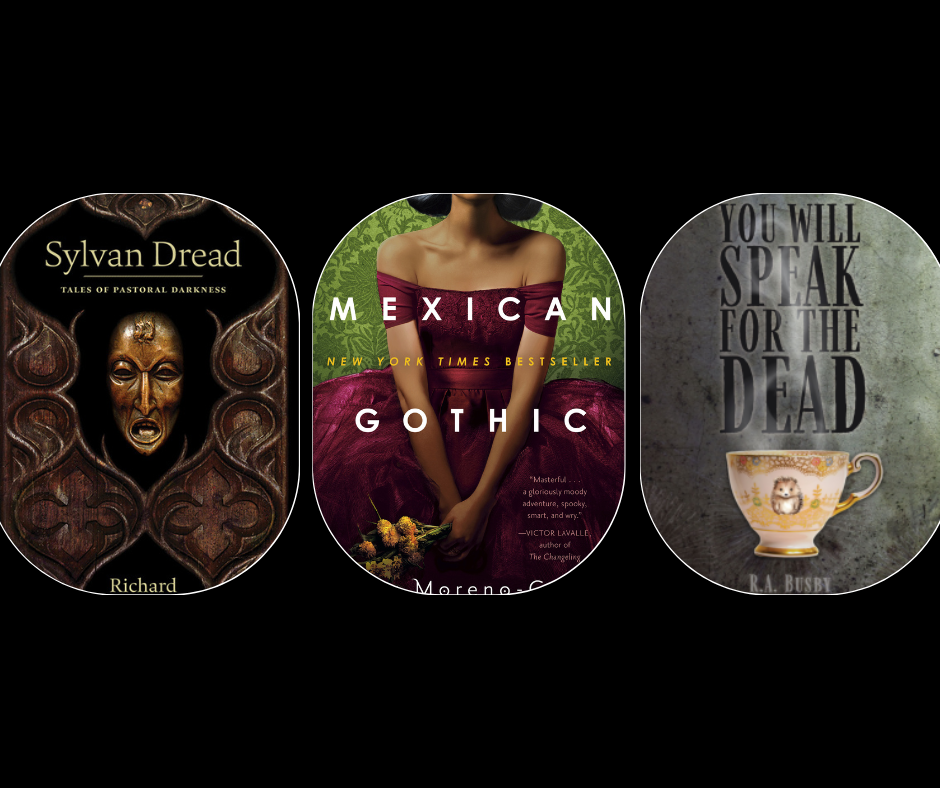
Sylvan Dread
The story of how I found out about this collection of short eco-horror stories by Richard Gavin was via r/Appalachia.
Just bear with me here, because I’ve been removing myself from social media for a while, and a lot of Reddit is full of anger and hatred, but once in a while I find a gem. And the Appalachia subreddit is just that. Note that many Appalachian people (from whence I came, partly, through my mother, and where I’ve spent a lot of quality childhood and some adult years) have recently gone through the worst floods and are in the midst of loss and rebuilding. Their resilience and strength is to be admired. Their story is one of community and helping each other. It was through this place a few weeks ago, before floods and Hurricane Helene, where I found a post mentioning Sylvan Dread.
Sylvan Dread (Three Hands Press) is a book with a wide variety of types of dread stories, from mythological to modern, from forests and coasts to urban landscapes, and all are haunting. Gavin writes with the most unique analogies and perspectives, and, while this collection is not focused on fungi, you’ll find a lot of eco-horror. Also, in an interview with The Plutonian, Gavin gave an explanation of his love for literary horror, which I like and can attribute to the way I feel about weird fiction in general:
Horror is important to me because it is almost combative toward our preconceptions about life, death, and the universe. Transgression is art’s raison d'être. Art exists as a means by which we can violate our own perceptions of reality, can shock ourselves into a new way of perceiving. Art presents something—an idea, an image—that terrifies and liberates us with its Otherness, its stubborn refusal to slip neatly into our preconceptions of how the world is. We are changed.
Mexican Gothic
It took me just three days to finish Mexican Gothic (Del Rey) by Silvia Moreno-Garcia. It’s a novel that has been on my to-read list for a while. When I finally hunkered down with it, I got through it quickly, which reminds me of the old me, with voracious reading habits. The novel starts out with a coquettish woman named Noemí Taboada whose father wants her to go visit her sick cousin Catalina, who is at a Mexican country house called High Place. The mystery of the sickness and the strange qualities of the mildewing and blooming Victorian house lead Noemí through a fungi mystery roving through mazes of the house, along with what the house symbolizes: patriarchy, eugenics, incest, and haunts. Noemí transcends from a coy socialite to a heroine as she fights her way through the spore-addled family and breaks through their rot.
You Will Speak for the Dead
Oh my gosh, this newest title by Stelliform Press, man: I loved it and just wanted to hug it at the end, thanking it for its beautiful evolution that made me get teary, laugh, and become uncomfortable and awkward at times. As I told the Rewilding Our Stories Discord: “It’s not every day you’ll read such a life-affirming book that includes fungi growing out the main character’s, ahem, nether regions.” Paul’s a guy who cleans houses and is going through the sadness of a recent breakup when he enters a hoarder’s house with his team. But this job is really weird. Fungi and spores cover everything. Paul’s transformation is physical (body horror) and emotional (from fright to life-affirming). There’s so much of this slim novella’s story to love and remember. One of the tropes I zoomed in on was how things in place orient us. A hoarder might know where everything little thing is, despite the chaos to anyone else. On our planet, back before people boxed themselves in to screens that show them where to go, we got around by natural landmarks: trees, creeks, hills and mountains, boulders, etc. Remove those landmarks, and you get lost.
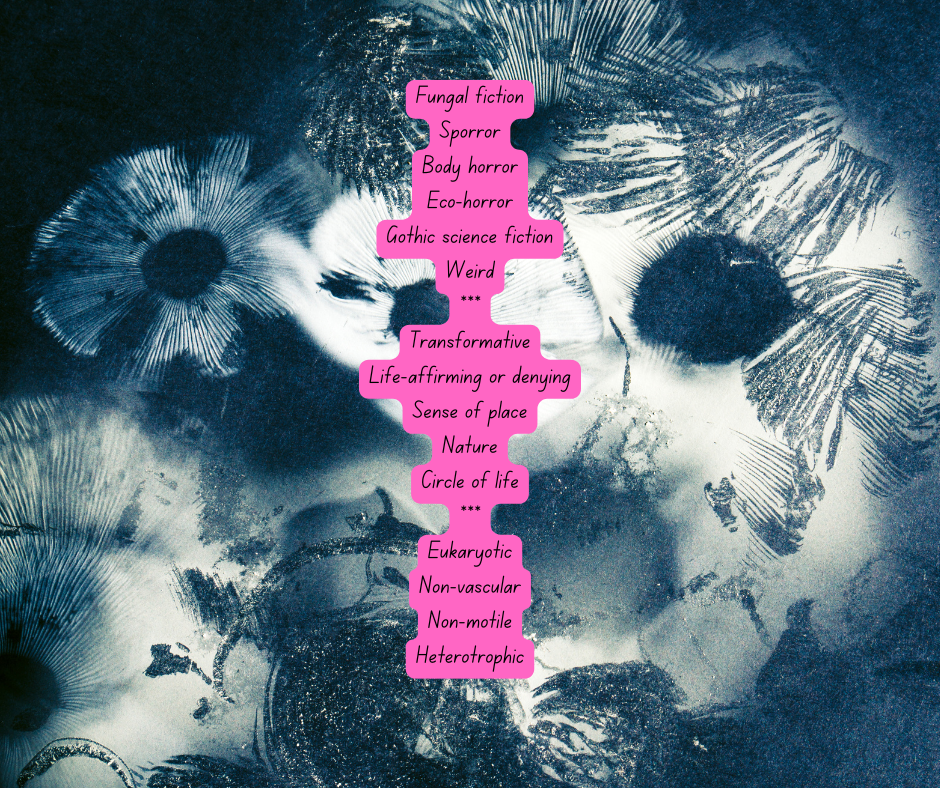
I have Sheldrake’s Entangled Life: How Fungi Make Our Worlds, Change Our Minds & Shape Our Futures already but haven’t read it. Now, however, I want to find out more about fungi. Busby lists the book as helpful to her when writing You Will Speak to the Dead. Guess what I will be reading soon?
The theme of this newsletter reminds me of a recorded chat I did with D.O.R.K.S. (Describing Our Research and Knowledge Socially) nearly three years ago. It’s a webinar series hosted by Kelly Weinersmith and Scott Solomon. The theme for this episode was about science and art. I spoke about ecologically oriented fiction, and Autumn Anglin about fungi, art, and community science. We barely touched the subject about fungi in fiction. Autumn has a few places on the web to check out her community science and fungi art.
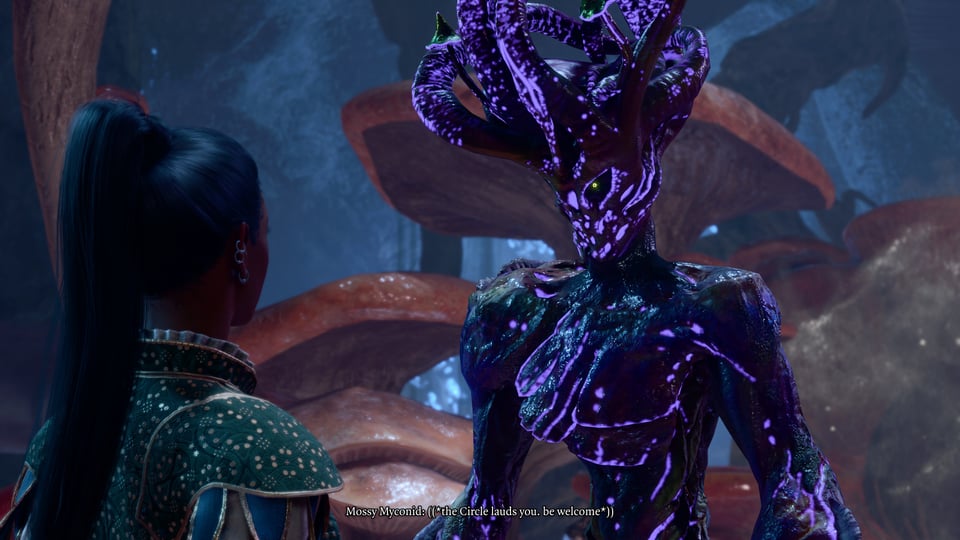
Other news
I changed the format some this issue. I don’t always want to just list books and spotlights; anyone can visit Dragonfly.eco at any time and see what’s new. This month’s world eco-fiction spotlight is on Thomas R. Weaver’s Artificial Wisdom, a climate change novel that mostly takes place in a floating city in the Mediterranean.
I’ve also updated the post on Jeff VanderMeer’s Absolution, which just came out. It’s the fourth part of the Southern Reach series, which is partly what got me into weird fiction to begin with.
See other new titles such as Robbie Arnott’s Dusk, the upcoming Metamorphosis anthology curated by Grist and edited by Sheree Renée Thomas, and A Place Unmade by Carla Seyler.
Resources
In case you’ve missed these exciting resources, including newest books at Dragonfly, check ‘em out!
LinkTree: Find out more about me.
Rewilding Our Stories: A Discord community where you can find resources, reading, and writing fun in fiction that relates strongly to nature and environment.
Our environmental/nature song-of-the-week playlist goes back to 2015.
Book recommendations: a growing list of recs.
Eco/climate genres: They’re all over the place, and here’s an expanding compendium.
Inspiring and informative author quotes from Dragonfly’s interviews.
List of ecologically focused games.
List of eco/climate films and documentaries.
Eco-fiction links and resources.
Book database: Database of over 1,100 book posts at Dragonfly.eco.
Turning the Tide: The Youngest Generation: Fiction aimed toward children, teens, and young adults.
Indie Corner: The occasional highlight of authors who publish independently.
Artists & Climate Change. This site is no longer being updated but still has a wealth of info. I was a core writer for their team, and I’m both honored and grateful. Look for my “Wild Authors” series there.
You just read issue #47 of Dragonfly.eco News. You can also browse the full archives of this newsletter.
